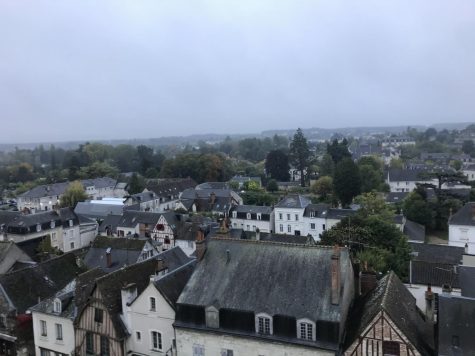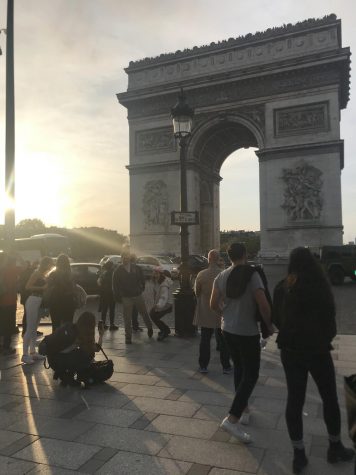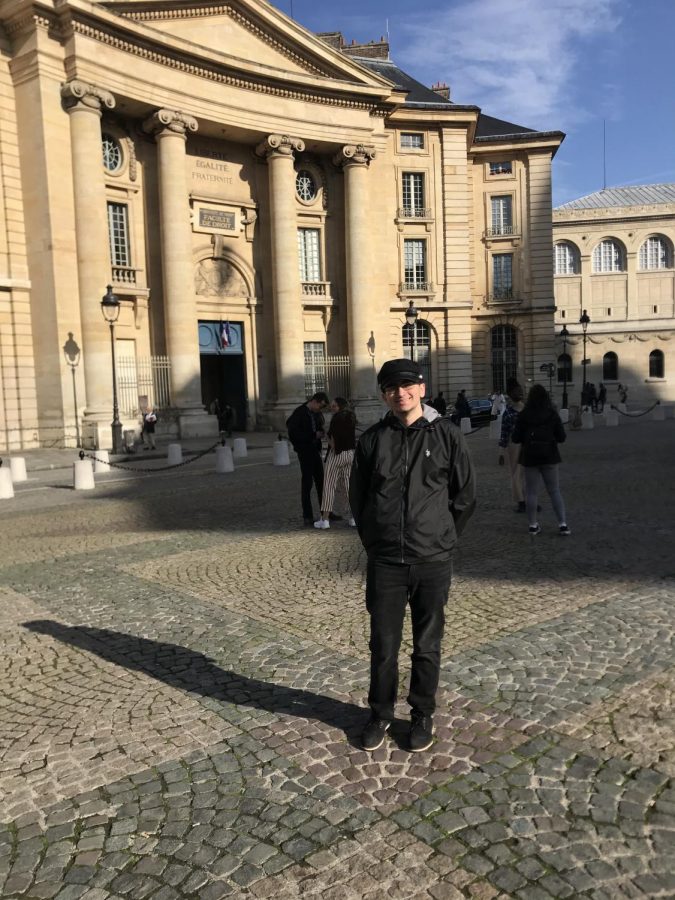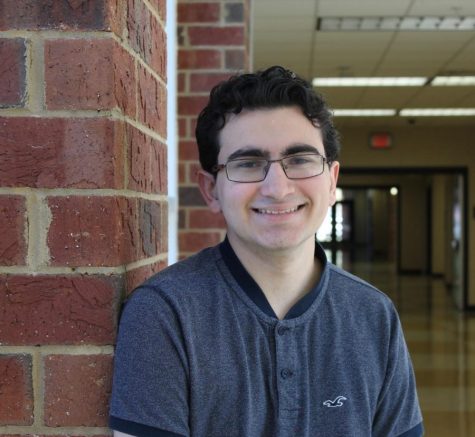L’Expérience Étrangère: One Staff Writer’s Experience on the French Exchange Trip
Staff writer Evan Gmahle stands outside of the Panthéon in Paris.
November 22, 2019
The United States makes up a little more than 6% of the world’s land area, and, according to Forbes magazine, 40% of Americans have never left the country, leaving 94% of the world unexplored.
For most of my life, I was part of that figure.
So what possessed me and 11 others to sacrifice more than a week of our American lives in France?
The school’s French exchange program gives students the opportunity to spend 10 days with a French family in Massy, a city on the outskirts of Paris. Participants get to see the sights and live the life.
But what does that mean? What are the sights and the life?
It all began on Oct. 9, the day we left for the airport. I was forced to leave school during lunch, to the dismay of my period six and seven teachers.
After a difficult flight, including the usual fear of all of us dying in the Atlantic, we landed in Charles de Gaulle airport on Oct. 10. Next was the bus ride to the Lycée Vilgenis, our exchange partner’s high school, and where we would meet our French friends.
There I met my own, Arthur LeBoloch. A young man of only 14 years, a fast talker and, as I learned throughout the trip, a fan of rap music. He would be my guide through a world I had heard of only through hearsay.
On Oct. 12, 13 and 14, we, as well as a group of other exchangees, went on our first trips to Paris. These were perhaps the most stereotypically “tourist” days of the trip, but seeing the Eiffel Tower, the Arc de Triomphe and the Sacré-Cœur was rather magical nonetheless.
The 15th saw us at the Gardens of Luxembourg and the French Senate, where I saw a Communist senator questioning government ministers about the lack of judo in the 2024 Olympics.
The 16th was the Louvre, and the 17th was the city of Amboise. The trip had its final day on the 18th, at the Versailles Palace, and we left the day after.

A view of the town from the Château d’Amboise.
Aside from the sheer amount of work I needed to make up upon returning home, the trip was quite standout. French culture in particular was of great interest.
On the surface, things were quite similar to the United States, but certain stereotypes were confirmed.
LeBoloch told me it’s normal for a French family to consume an entire baguette in a day. That’s a piece of bread, on average, five inches wide by 26 inches long, consumed on the daily.
And he really did say, “Oh la la” sometimes. Not often, but sometimes.
Schools were also a great deal less fancy. There were no decorations; hallways were small and painted a muted blue.
On the other hand, it may just be a difference of priorities. The school had two cafeterias, one of which must have been twice the size of Cambridge’s.
Senior Maddie Feely was another member of the exchange group. Despite having been born in France, this was her first time in the country in a while.
Feely said she had some issues connecting with her exchange partner.
“It was definitely a work in progress. It was a little difficult at first just because of the language barrier,” she said.
Things did improve, however.
“Throughout the week, I feel we became really close,” she said.
Feely enthusiastically recommends the experience to anybody considering it “because of the friendships you make” and “to gain knowledge in French history and language,” she said.

The Arc de Triomphe near sunset.
The French Exchange does, however, include a great deal more than just activities and friendship. It also has a great deal of bureaucracy.
Rachel Dines, a French teacher at the school, was one of the two chaperones of the trip along with fellow teacher Colleen Baldridge. She is also the one responsible for the trip’s birth.
When she first arrived at the school, creating an exchange program was one of her highest priorities. Dines called a colleague in France, and “within days, the Lycée Vilgenis established an exchange with us,” she said.
That wasn’t the whole of it, though. The government paperwork took the remainder of the year, and she recalled how Edward Spurka, the school’s former principal, was made to sign a number of French papers, none of which he understood.
Once it was running, it came up well. “I think it’s been very successful,” she said, adding that it “helps them a lot in future careers,” what with the rising demand for foreign language ability in the increasingly globalized economy.
The trip was a wonderful experience, and having to leave was devastating. The only consolation is the knowledge that it goes on, and come next year, a new batch of students can have the same opportunity.


